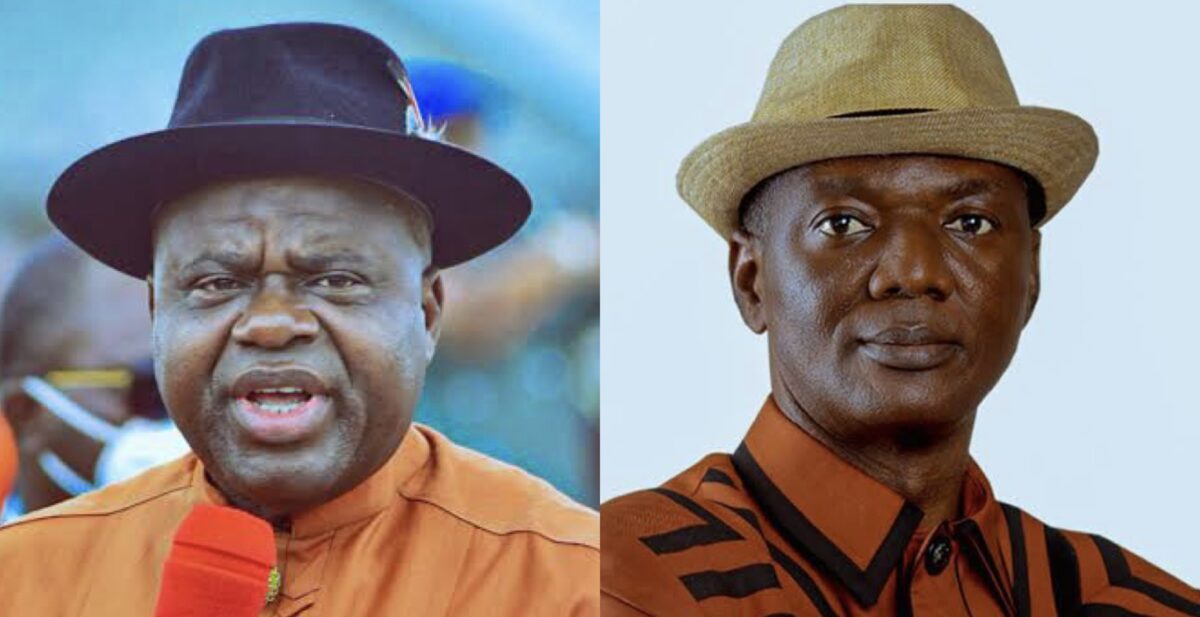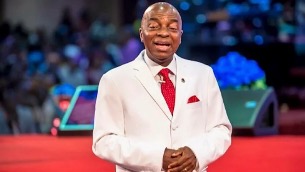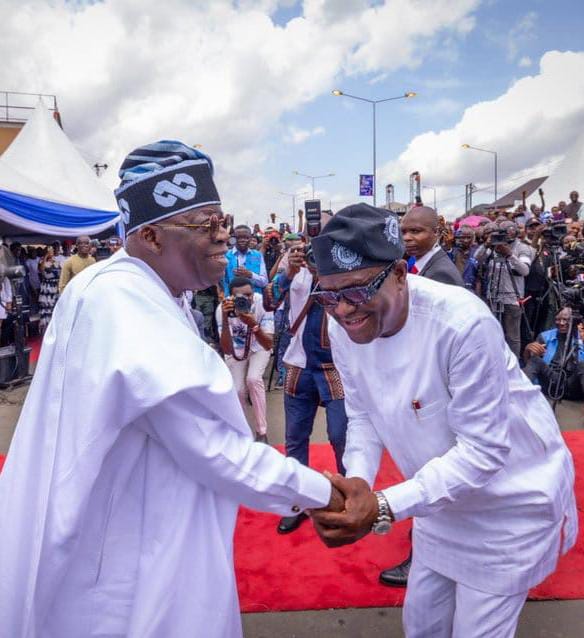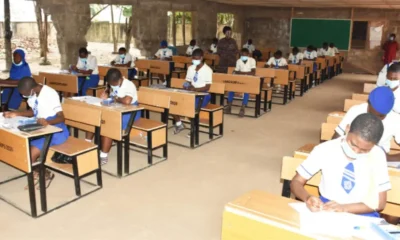Politics
Nigerians Push to Curb Presidential Powers Over INEC and Judiciary
Nigerians Push to Curb Presidential Powers Over INEC and Judiciary
Nigerians advocate for reforms to strip the presidency of powers over electoral and judicial bodies, aiming for unbiased governance. Discover the details here.
Since the launch of the Save Democracy Mega Alliance 2027 (SDMA’27) campaign last month, there has been significant public support for its initiative to amend Nigeria’s constitution.
The coalition aims to eliminate the President’s control over the Independent National Electoral Commission (INEC) and the authority of state governors over the State Independent Electoral Commissions (SIECs).
Additionally, it seeks to curtail presidential powers regarding judicial appointments, specifically the Chief Justice of Nigeria and state Chief Judges.
Prior to this campaign, various stakeholders had advocated for the removal of these appointive powers, arguing that such authority undermines the independence of both the electoral and judicial systems.
The coalition contends that transferring these powers to an independent body would mitigate executive influence in these critical areas.
During a recent briefing in Abuja, spokesperson Tony Akeni Le Moin outlined the coalition’s plans for a nationwide campaign, culminating in a significant event in the capital.
The SDMA’27’s proposed amendments focus on delegating the appointment of INEC, SIEC, and judicial leaders to a non-partisan body composed of individuals of integrity.
The initiative has received endorsements from notable leaders and pro-democracy organizations, including support from esteemed political economist Professor Pat Utomi.
Utomi has characterized the movement as a pivotal moment for Nigeria’s democracy since 1999, highlighting the Justice Uwais Electoral Reform report as a crucial starting point.
He noted that the report advocates for reforms in executive appointments concerning the Independent National Electoral Commission (INEC) and the judiciary, emphasizing that shielding these institutions from executive interference would enhance electoral integrity and governance.
The coalition has proposed a three-pronged strategy aimed at fostering national consensus among political, religious, and civil society groups to advocate for constitutional reforms.
Their objective is to generate support for a national conference to formally suggest amendments and to persuade both national and state assemblies to diminish the executive’s excessive influence over INEC and the judiciary.
This initiative aims to prevent a recurrence of the troubling events that marred the 2023 elections in 2027, with the coalition warning that without these reforms, the upcoming elections may mirror previous electoral manipulations.
They invoked the words of Rev. Martin Luther King Jr. to emphasize the necessity of organized resistance, calling on Nigerians to brace for what they term a “national emergency” to restore democracy in the country.
In response, Dr. Pogu Bitrus, president of the Middle Belt Forum, remarked that the focus should not solely be on who makes appointments, but rather on who has the authority to dismiss.
Politics
Breaking: Diri Orders Autopsy on Bayelsa Deputy Governor’s Death, Warns Against Politicisation

Bayelsa State Governor, Senator Douye Diri, has ordered an autopsy to determine the cause of death of the state’s Deputy Governor, Lawrence Ewhrudjakpo.
Governor Diri gave the directive on Saturday while receiving former President Goodluck Jonathan at the Government House in Yenagoa.
Reacting to the incident, the governor condemned what he described as widespread misinformation and speculation on social media, warning against any attempt to politicise the deputy governor’s death.
“I want to make an appeal. I have seen people politicise his death. In Ijaw land, there is no enmity in death. Let nobody politicise the passing of our dearly beloved deputy governor,” Diri said.
“If anyone truly loves him, this is the time to show it. I have directed that an autopsy be carried out to reveal the cause of his death. There is a lot of nonsense going on on social media.”
The governor further urged the public to focus on mourning and honouring the late deputy governor, noting that the state government had declared three working days of mourning in his honour.
“If anyone is issuing statements to eulogise him, let it end there. Let us mourn him because Bayelsa State is in a mourning mood,” he added.
Governor Diri also called for unity and love among the people, reminding them of the inevitability of death.
Speaking during the condolence visit, former President Goodluck Jonathan described the late Ewhrudjakpo as a committed and dedicated individual who played a key role in the activities of his foundation.
“For me, he was someone my foundation and I will never forget. He represented the governor in all our programs,” Jonathan said, adding that Ewhrudjakpo worked tirelessly in that role, even more than when he served as deputy governor.
Politics
N1.4 Trillion not enough to get me into politics – Bishop Oyedepo reveals

The founder of Living Faith Church, Bishop David Oyedepo, has said he will never take part in partisan politics, not for even billions of naira.
He stated that no amount of money, including “$1 billion,” (1.4 Trillion naira) would make him join politics.
Oyedepo made this known during an impartation service at Shiloh 2025 held at the church’s headquarters in Canaanland, Ota, Ogun State.
He explained that partisan politics is not part of his life’s calling and that is why he has chosen to stay away from it.
In his words: “In 2015, I warned the church that trouble was coming. Didn’t trouble come?
“Partisan politics is off my calling. If you give me $1 billion to join politics, I won’t, because it is off my course.”
The bishop also said the world is in urgent need of God’s intervention because of the times we are living in.
According to him, believers are being trained as an end-time army to bring solutions to national and global problems, similar to what biblical figures like Joseph and Daniel did.
EVENTS
Wike at 58: “You’re a Shinning Star in my Cabinet, Tinubu hails Wike.

President Bola Tinubu congratulates Chief Nyesom Wike, Minister of the Federal Capital Territory (FCT), on his birthday, December 13.
President Tinubu celebrates with the Minister and former governor of Rivers State, giving thanks to God Almighty for enriching him with a life defined by purpose, service, and courage.
The President describes Chief Wike as an audacious top performer who defies obstacles and delivers results.
President Tinubu acknowledges the ongoing transformation of the Federal Capital Territory through infrastructure expansion, highlighting the Minister’s recent intervention that broke the 14-year logjam in the construction of the Apo-Karshi road.
The President commends Chief Wike for his resilience, can-do attitude, and commitment to excellence in all assignments.
President Tinubu thanks the Minister for his consistent efforts in delivering results and wishes him a happy birthday and strength to further his good work in the FCT.
“Nyesom Wike has been one of the shining stars in the cabinet, an exceptional performer, developing infrastructure in the Federal capital as never seen before and proving that his moniker as ‘Mr Project’ is not limited to his home state of Rivers.
“I commend him for being one of the champions of our Renewed Hope Agenda, even though he belongs to another party and wish him well as he marks another year in his life journey”.
Bayo Onanuga
Special Adviser to the President
(Information and Strategy)
December 13, 2025
-
Business1 year ago
US court acquits Air Peace boss, slams Mayfield $4000 fine
-

 Trending1 year ago
Trending1 year agoNYA demands release of ‘abducted’ Imo chairman, preaches good governance
-

 Politics1 year ago
Politics1 year agoMexico’s new president causes concern just weeks before the US elections
-

 Politics1 year ago
Politics1 year agoPutin invites 20 world leaders
-

 Politics1 year ago
Politics1 year agoRussia bans imports of agro-products from Kazakhstan after refusal to join BRICS
-
Entertainment1 year ago
Bobrisky falls ill in police custody, rushed to hospital
-
Entertainment1 year ago
Bobrisky transferred from Immigration to FCID, spends night behind bars
-
Education1 year ago
GOVERNOR FUBARA APPOINTS COUNCIL MEMBERS FOR KEN SARO-WIWA POLYTECHNIC BORI













